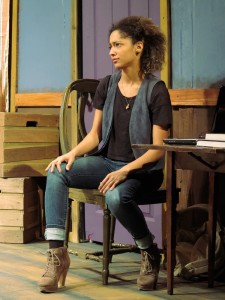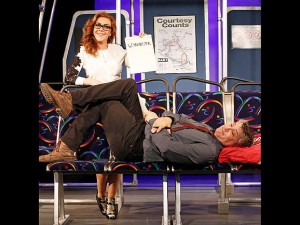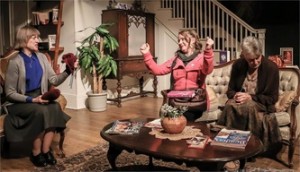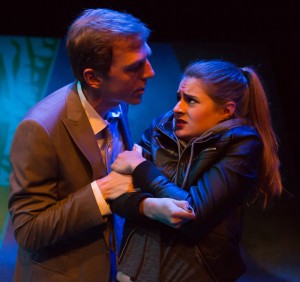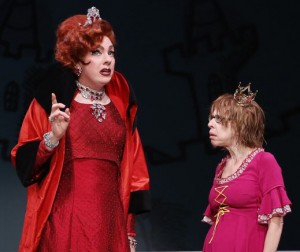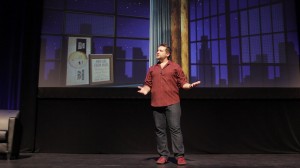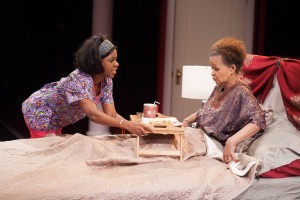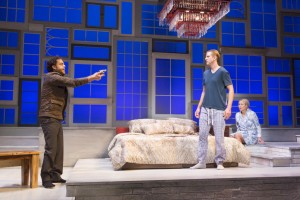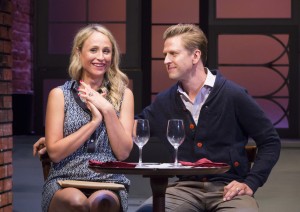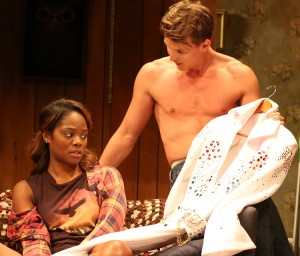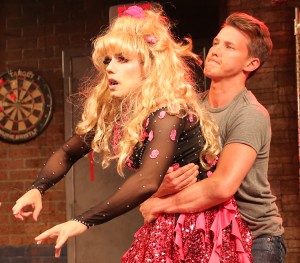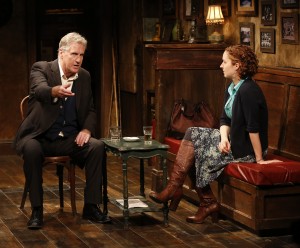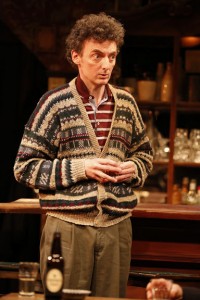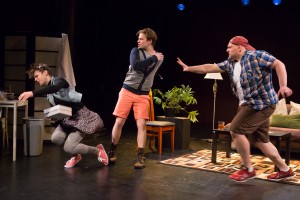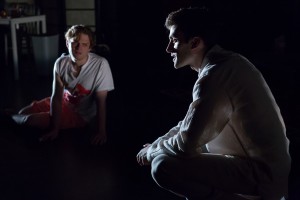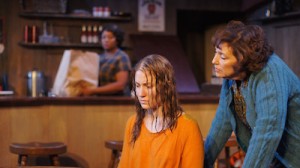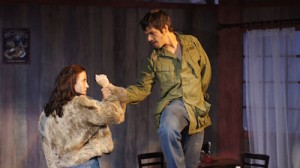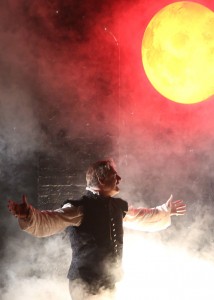What happens when an aging softcore porn director returns to his family home in Levittown, L.I., to sort through the remnants of his childhood while harboring hopes of repairing broken family ties? Allen Wilder 2.0, currently running at Theater for the New City, urgently wants to come to terms with what it means to age while living a life, less than exemplary, full of unfulfilled dreams.
The fast-paced dialogue is handled aptly by three, age-appropriate actors: Joe Casey (Michael Sullivan), Steph van Vlack (Donna Mullins) and Becca Fox (Kayla). A special nod to van Vlack and Casey who, while probably afraid to show it, did very well baring more than their artistic souls.
There is the age-old argument in theater—should the playwright also be the director? Often, having the writer and the director be one in the same provides no distance from the work that is afforded a different director. While the overall direction of Allen Wilder 2.0 by Matt Morillo is exceptional, the challenge is in his script, which brings little that is new to the conversation of self-worth, family dynamics, aging, abandonment, parental divorce, sex, fear of intimacy, and the longing for approval.
The actors, however, bring life to what they were given. Casey embraced the ‘40-something animated male from Los Angeles with charm and certitude. His voice is clear and full of expression and was often burdened with the running gag, “It’s soft core!” when others referred to his directorial work in porn, attempting to somehow make it palpable. Casey’s personal challenge is evidenced with his thigh slaps as the end to arm or shoulder gestures. At second glance, his nude scene is apropos to the events and is played off well with the use of a plastic fireman’s helmet.
Michael’s love interest, albeit for one night, is his former babysitter, Donna, who has 10 years and two children on him. As Donna, van Vlack embodied all the fear of a middle-aged, small-town woman “challenged by gravity.” The character may have been full of fear, however, van Vlack embraced her curvaceous body when Michael was finally able to dispense with her dress. The "come here, go away" choreography between Donna and Michael wore a little thin after time, and the script didn’t provide much room for her character to grow; it left the audience wanting more.
Kayla, Michael’s niece, is argumentatively played by Becca Fox, who is fresh and crisp, with a confident edge to her voice. Kayla’s disdain for her uncle is exacerbated when she inadvertently walks in on the remnants of Michael and Donna’s tryst. Michael fumbled through his attempt to reconcile with her until she revealed that she read his journal that brought to light her grandfather’s overt racism. Given Kayla’s father is black, her mother’s attempt to honor the memory of the man, creates a wedge between Kayla and her mother that appears insurmountable.
The audience arrives to a blaring and lively '80s rock soundtrack. Once the play commenced, the dialogue is fast-paced with a few contemporary references and some humor woven into the script. When offered to drink from a bottle of 25 year-old whiskey, Donna asked, “No glasses, are we animals?” to which Michael slyly replied, “We’ll see.” Unfortunately, the overall script never appeared to find its footing or depth.
Designed by Mark Marcante, the set is the abandoned family home in Levittown. There are a few subtle references to the famous mid-century track homes; a piece of abstract art and two Arthur Umanoff-style wood slat swivel counter stools. Packing boxes are stacked in the corner for Michael to go through the things he left behind, and there is an oddly placed desk, devoid of a lamp or phone, off to the side near the backdoor. The house felt more like an abandoned farmhouse rather than a residual to the testament of the “American dream” for a middle-class family.
The unfortunate thing about the lighting, designed by Amith Chandrashaker, is that no reference is made to night or day; the lights are on. After returning from a night of drinking, Michael and Donna burst on scene, well into the evening, with the porch light lit, while Kayla finds them asleep in the morning all to the same lighting in the second scene. The play takes place over a 12-hour period leaving the imagination to conjure evening, morning and mid-day lighting.
The credit for an enjoyable evening goes to the actors and their willingness to step outside themselves, embodying the characters on the printed page of Allen Wilder 2.0. The kindness portrayed by Michael’s character near the end of the play may not have much lead-in, but offers a glimpse into the generosity of human spirit with the ability to start anew merely by saying so.
Allen Wilder 2.0 runs until Jan. 31 at Theater for the New City (155 First Ave. at East 10th St.). Performances are Thursday-Saturday at 8 p.m. and Sunday at 3 p.m. Tickets are $18 and can be purchased by calling SmartTix at 212-868-4444 or visiting www.smarttix.com. For more information, visit http://www.theaterforthenewcity.net/allenwilder2.html.







